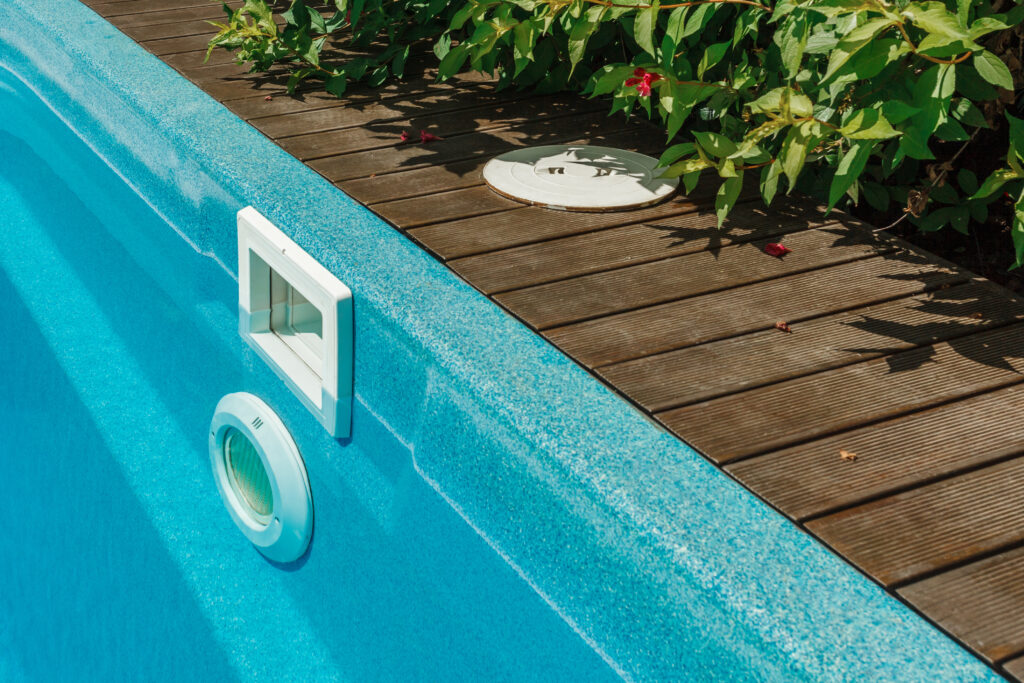How to Lower Calcium Hardness in a Pool
Lowering calcium hardness in a pool can be challenging. It typically involves dilution with fresh water or specialized treatment products. Here are several methods to lower calcium hardness in a pool.
Dilution with Fresh Water
- Partial Drain and Refill: Indeed, the most effective method for lowering calcium hardness is to partiallydrain the pool and refill it with fresh water. First, calculate the amount of water needed to dilute the calcium hardness to the desired level based on the pool’s volume and current calcium hardness level.
Reverse Osmosis (RO) Treatment

- RO Filtration: Moreover, reverse osmosis is a water purification process that can effectively remove dissolved solids, including calcium ions, from pool water. Furthermore, mobile RO filtration units are available that can be brought to your pool site to perform the treatment without the need for draining.
Use of a Chelating Agent
- Chelating agents can help sequester or bind calcium ions in the water, preventing them from forming scale on pool surfaces. Products containing EDTA (ethylenediaminetetraacetic acid) or HEDP (1-Hydroxyethylidene-1,1-Diphosphonic Acid) are commonly used as chelating agents. Follow the manufacturer’s instructions for dosage and application.
Adding a Flocculant
- Flocculants can help remove calcium hardness and other dissolved solids from pool water by causing them to clump together and settle to the bottom of the pool. Once the sediment has settled, you can vacuum it out of the pool. Furthermore, keep in mind that this method may require frequent filter backwashing and cleaning to remove the sediment.
Consider pH Adjustment
- High pH levels can contribute to calcium scaling in the pool. Lowering the pH to the lower end of the recommended range (7.2-7.6). It can help prevent calcium from precipitating out of solution and forming scale. However, be cautious not to lower the pH too much. Additionally, it can lead to corrosive water and other water balance issues.
Consult a Professional
- If you’re unsure about how to proceed or if your pool’s calcium hardness levels are extremely high. Consider consulting a professional pool service provider or water treatment specialist. They can assess your pool’s specific situation and recommend the most appropriate course of action.
Before attempting to lower calcium hardness in your pool, it’s essential to test the water to determine the current calcium hardness level accurately. This will help you gauge the effectiveness of any treatment method; therefore, ensuring that you achieve the desired results without compromising water balance or pool equipment.